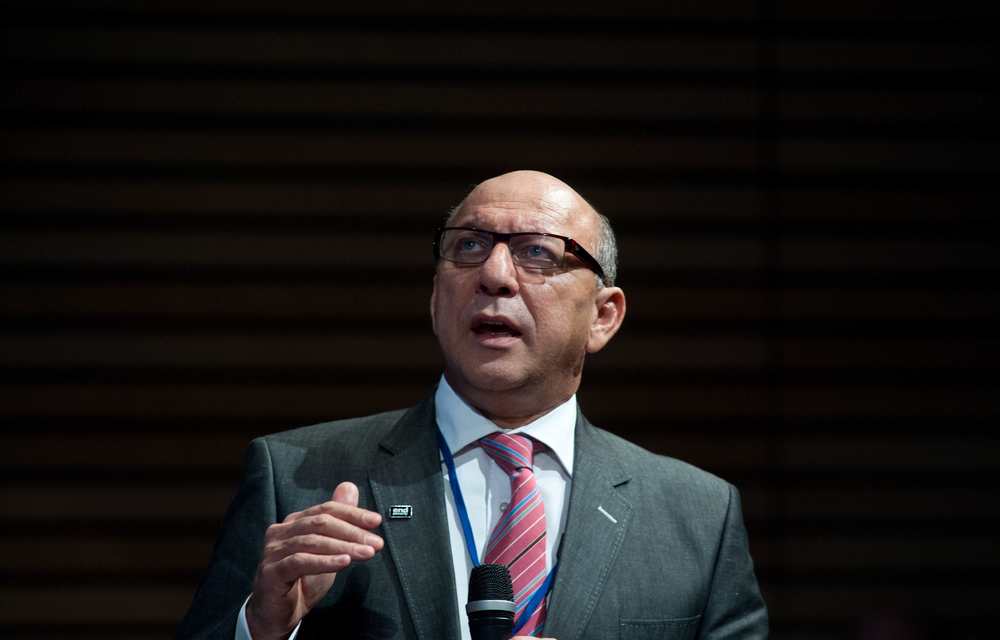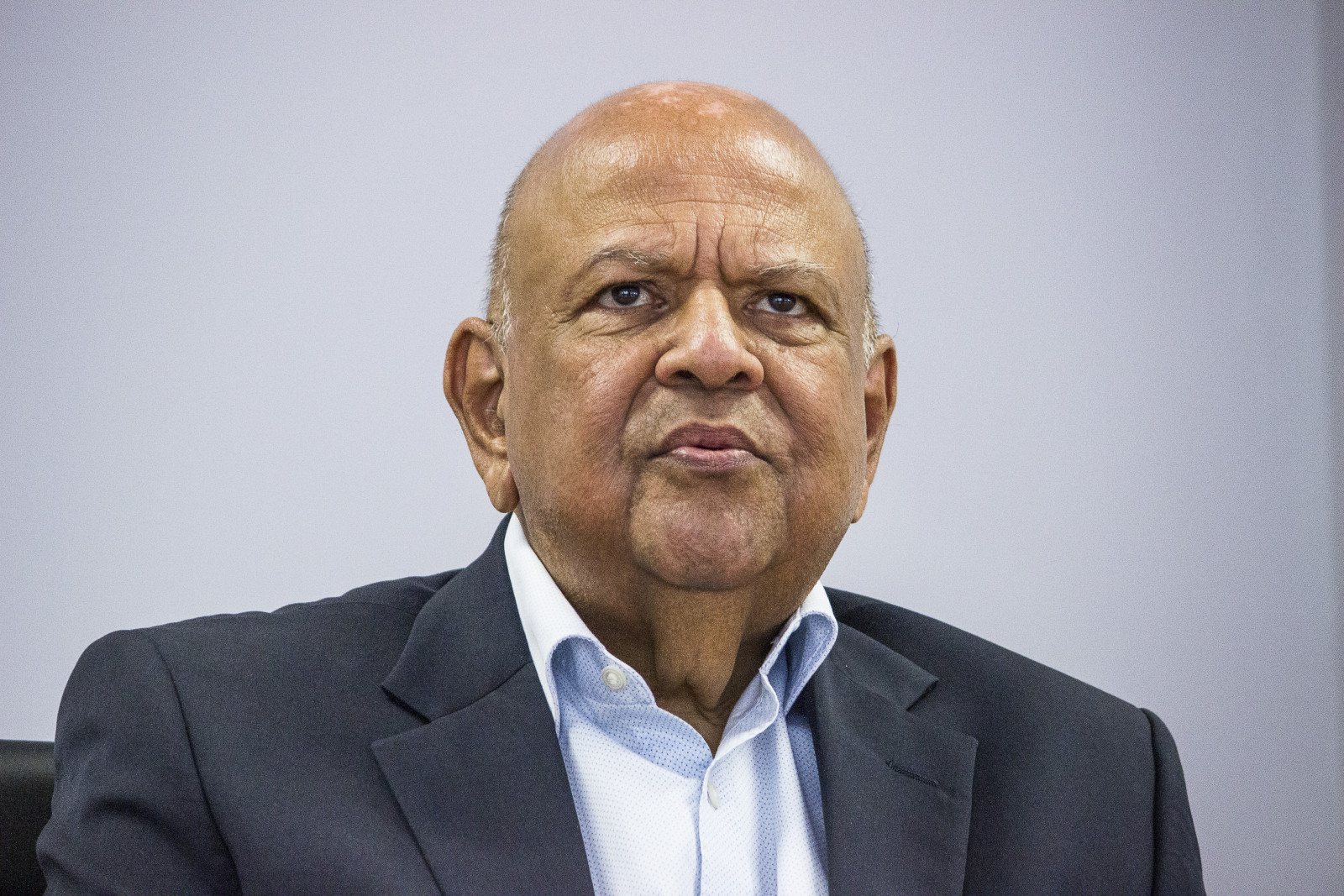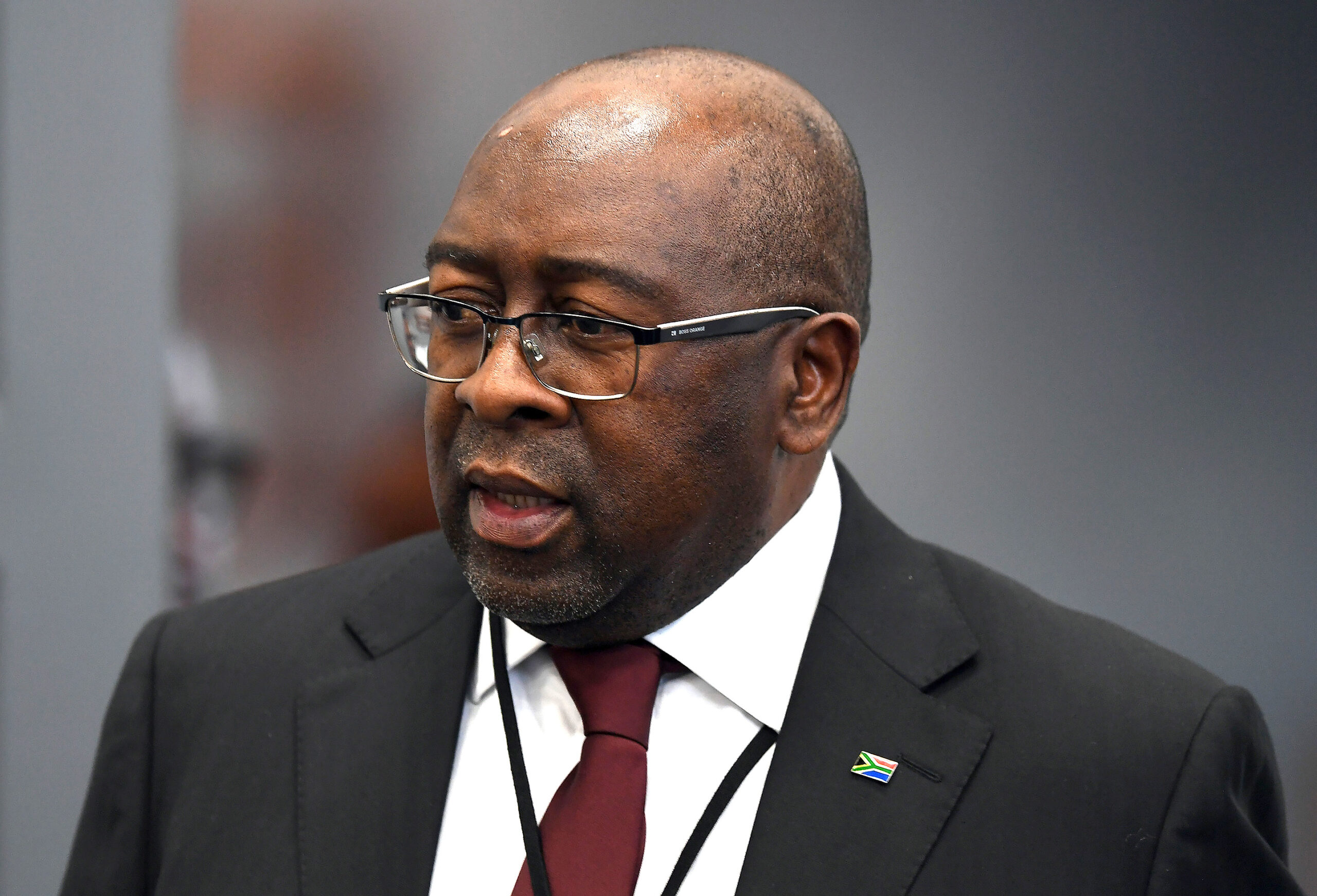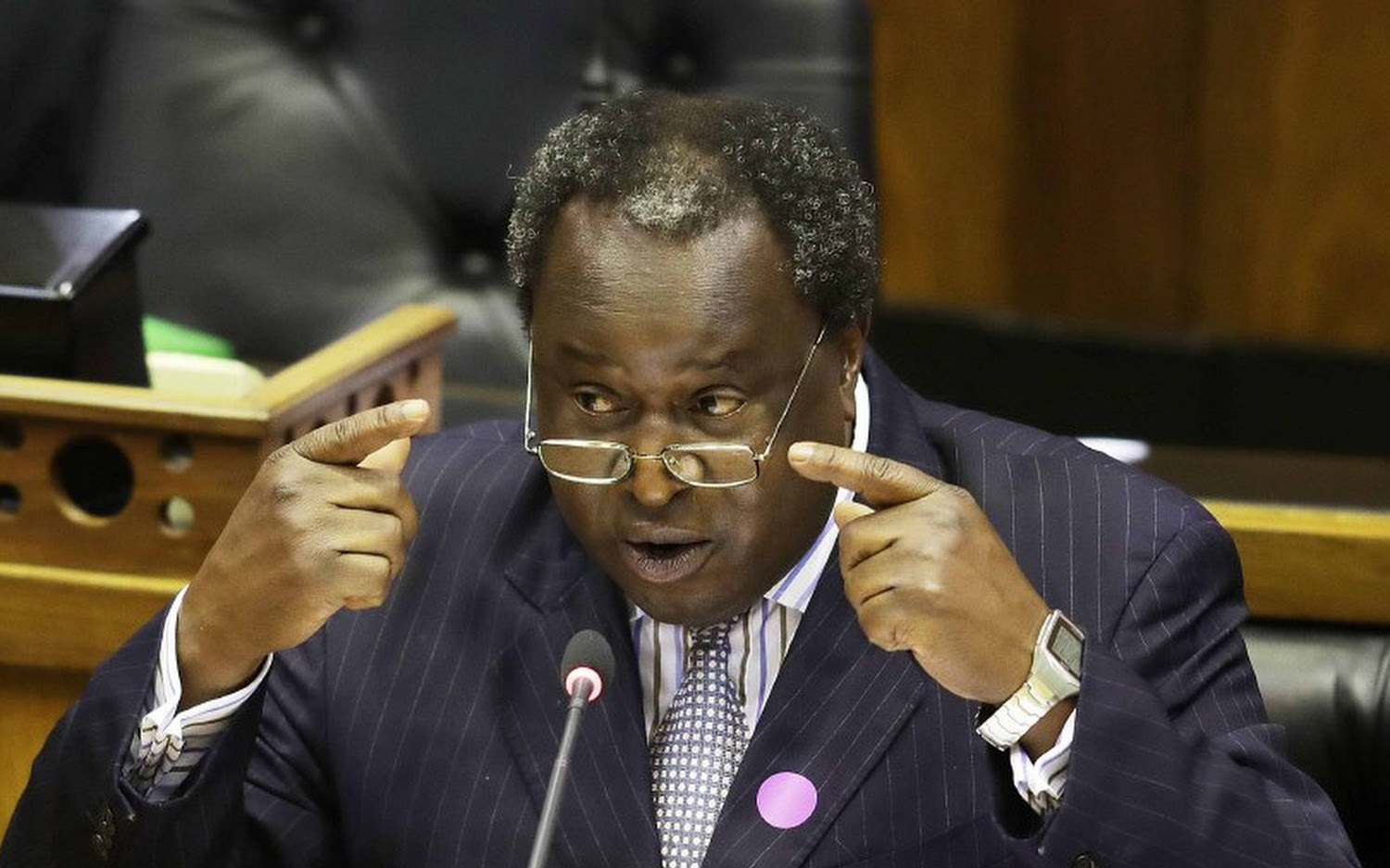The treasury and the ANC economy’s death by a thousand cuts
The journey to full-blown austerity is marked by changes to an economy presided over by a government adrift
GRADE: D
Trevor Manuel’s last budget speech quoted Ben Okri’s A Way of Being Free, an anthology published the same year the outgoing finance minister gave his first appraisal of the country’s public purse before parliament.
“If we refuse to face any of our awkward and deepest truths, then sooner or later, we are going to have to become deaf and blind. And then, eventually, we are going to have to silence our dreams and the dreams of others. In other words, we die. We die in life.”
A lot had changed between 1996 and 2009.
Manuel, who would become the fledgling democracy’s longest-serving finance minister, was welcomed by what he called “a baptism of fire” when the rand crashed early in his tenure. By the time he left the finance ministry, the country was in the thick of another blaze — a global financial crisis, from which the economy would never recover.
In retrospect, Manuel’s reference to Okri, whom he quoted on a number of occasions during his 13-year term, was adequately dramatic given the future path of South Africa’s economy and its public finances.
Shifting gear
Today, as the ANC prepares to celebrate 30 years at the country’s helm, its finance ministry has recently marked another, much less auspicious, anniversary: a decade of spending cuts, which have added to the economy’s post-financial crisis malaise.
For this reason — and because fiscal consolidation hasn’t delivered the stable public finances it promised, instead devolving into full-blown austerity — the treasury has been on the receiving end of considerable criticism.
This censure has persisted despite the department currently being led by a perfect-on-paper finance minister in Enoch Godongwana, who brought to the job the political heft needed to resist demands on the public purse, something his predecessor struggled to negotiate.
Key among this criticism is that the treasury has become increasingly out of step with reality. This predicament seems to be a symptom of two things. First, the finance ministry’s apparent disregard for economic growth and, second, its failure to reflect the true effect of austerity, as well as an ongoing political tug-of-war, on the public purse.
Growth has become an important feature of criticism against the finance ministry this year, which is on track to deliver a meagre 0.8% boost to an economy that has basically flatlined since 2009.
As economist Duma Gqubule, a research associate at the Social Policy Initiative, points out, growth has proven elusive in the wake of chronic austerity. He alludes to the period prior to the global financial crisis, during which Manuel was in charge and when public spending aided economic expansion.
The first years of Manuel’s leadership ushered in a new approach to macroeconomic policy through the Growth, Employment and Redistribution (Gear) strategy, which had financial stability as its core priority.
To achieve this stability, the state would have to avoid running large deficits, by cutting spending, including on public sector wages. This, Gear surmised, would counteract the inflationary effect of changes to the exchange rate and inspire investor confidence.
In 1999 political economist Sampie Terreblanche criticised the fact that Gear — which has coloured ANC policy until today — narrowly focused on achieving macroeconomic stability, while neglecting social stability and state capacity. Inspiring foreign investments would be impossible in the absence of these two things.

Chris Liebenberg 1994 – 1996

Trevor Manuel 1996 – 2009. (Nicholas Kamm/AFP/Getty Images)

Pravin Gordhan 2009 – 2014. (Delwyn Verasamy/M&G)

Nhlanhla Nene (2014 – 9/12/2015) (Photo by Gallo Images / Netwerk24 / Felix Dlangamandla)

Des van Rooyen 9/12/2015– 13/12/2015

Pravin Gordhan 13/12/2015 – 2017

Malusi Gigaba 2017 – 2018. (David Harrison/M&G)

Nhlanhla Nene 27/2/2018 – 9/10/2018

Tito Mboweni 2018 – 2021 (Photo: Esa Alexander)

Enoch Godongwana 2021 – present. (Dwayne Senior/Bloomberg via Getty Images)
Growing pains
From 1996 to 2000, the government achieved a number of Gear’s targets — radically reducing the main budget deficit. For the most part, however, real government investment growth deteriorated compared to Gear’s targets. With the exception of 1996, the economy fell short of the policy’s growth goals.
But to the economy’s relief, Gear’s first five years were followed by a commodity-driven spending boom on infrastructure, core government services and transfers to poor households.
During this period, South Africa’s economy found its sweet spot: annual economic growth averaged about 4% from 1999 to 2008 and the country’s unemployment rate steadily declined. “Once you grow the economy, it becomes like a drug,” Gqubule remarks.
“Once the economy starts growing, a lot of things become affordable. From 2002 to 2008 we increased the number of public servants, but the wage bill as a percentage of GDP went down.”
Rapid growth and buoyant revenue allowed the government to maintain a primary balance, despite committing to more spending. South Africa’s debt-to-GDP ratio declined to historic lows, and the budget balance moved into surplus, according to former head of the treasury’s budget office Michael Sachs.
Because he presided over this period of growth, there is some nostalgia attached to Manuel’s tenure as finance minister. After about 2012, when commodity prices started to wind down, economic growth deteriorated, averaging only 1.7% from 2010 to 2019. During the latter part of this period, tax revenue also started to fall.
But Manuel-era nostalgia is about more than just South Africa’s improved growth prospects.
During this period — which coincided with the latter part of Nelson Mandela’s government as well as Thabo Mbeki’s presidency — the government, and by extension the treasury, enjoyed greater authority, eventually wrestled away by state capture.
“Times have changed. And the treasury is part of those changing times. It is not some separate entity outside of government,” Sachs says. “I think that’s the challenge that many people have. They tend to think of treasury as an agency external to the government, when actually it is part of the government.
“And its operations in those days of Mandela and Trevor Manuel and Thabo Mbeki reflected the political and economic conditions of that time. And those conditions have fundamentally changed.”
Wind of change
During his nine years as president, Jacob Zuma had four finance ministers.
His first, Pravin Gordhan, was sacked in May 2014, only to return in December 2015 after a disastrous four-day stint by Des van Rooyen. Between Gordhan’s first term and Van Rooyen’s short-lived time in office, Nhlanhla Nene served as finance minister for about a year and a half before he was unceremoniously fired by Zuma.
Gordhan endured another abrupt axing in March 2017 and was replaced by Malusi Gigaba, whose most memorable moments as finance minister include him quoting the Kendrick Lamar lyric, “We gon’ be alright.” We certainly were not alright.
The finance ministry’s travails during the state capture period are well documented. Gordhan and Nene came up against Zuma over the nuclear deal — which the treasury deemed unaffordable — and each described this dark period before the Zondo commission.
Lungisa Fuzile, who served as treasury’s director general for the large part of this period, recounted the presidency’s alleged attempts to wrest greater control over the budgeting process.
The removals of Gordhan and Nene caused great consternation among investors and the rand plummeted on both occasions. As the head of the treasury, the finance minister is much more like a director general insofar as their involvement in operational matters, so Zuma’s revolving door wrecked the sovereign’s credibility. Successive ratings downgrades only made the treasury’s work that much more difficult.
To make matters worse, the Zuma years also saw the dismantling of the South African Revenue Service, which was also a subject of Zondo’s inquiry following the Nugent commission’s findings. According to Sachs, while this certainly added to the slump in tax collections after 2016, underlying economic shifts were probably more important.
Sachs left the treasury in November 2017, seven months into Gigaba’s term, which wouldn’t last much longer. Gigaba had wedged a large thorn into the treasury’s side: a public sector wage agreement that would prove politically perilous to undo.
Tightrope
In early 2021, Gigaba’s successor, Tito Mboweni, tweeted: “Over the many years I have been active in politics, I have learnt policymaking is inextricably bound with politics. There is nothing like a data-driven, value-neutral policy. Does not exist. But the rubber hits the tar when one has to make trade-offs.”
Mboweni resigned some months later before being replaced by Godongwana. During his term, the media had taken to likening Mboweni’s job to walking a tightrope.
He had a lot to compete with. South Africa had fallen into junk status, making the cost of financing much steeper. The economy was dealt a near-fatal blow by Covid-19, which exposed the cracks that had formed in the public sector in the wake of treasury’s post-2012 spending cutbacks. These cutbacks would intensify in the years following the pandemic.
Mboweni left shortly after the July 2021 civil unrest — which to many felt like the culmination of South Africa’s economic decline, high unemployment and the deterioration of public services, each magnified by the ANC-led government seemingly having lost all capacity to arrest these crises.
Given the political nature of budgeting, there is no doubt that our current circumstances could be a lot worse under someone other than Godongwana, who has the benefit of having the trust of both those in the ANC and investors.
That said, the treasury has continued to err from reality insofar as it has failed to reflect the true extent of the damage austerity will inflict on the economy — and, by extension, the public purse. This, as well as ongoing resistance within the government, have put the credibility of the country’s fiscal framework in question.
Sachs’ criticism of the treasury is that it hasn’t given honest assessments of the trajectory of South Africa’s political economy. “And increasingly instead the budget documents are a reflection of an opening bid of a negotiation within society,” he says.
But even this is more a criticism of the government itself, which has failed to manage the politics in which the treasury is operating, Sachs notes.
For an economy with the flow of private investment as its lodestar, and in the wake of considerable social instability, failing to wrest back credibility has proven particularly pernicious.
Grading
Given South Africa’s economic predicament, brought on in part by a failure of policy to adapt in the face of horrendous global conditions, the finance ministry probably ought to receive a failing grade.
However, it is impossible to ignore that the treasury’s work has been made all the more difficult by the fact that the government as a whole has failed to bring about the economic prosperity promised in the National Development Plan.
Though we criticise them for advancing misguided economic policies, the treasury has also been led by some of the country’s most competent ministers, the incumbent included.
For these reasons, the finance ministry receives a D.
Get the M&G’s take on other ministries over the past 30 years:
Department of Health
Department of Police
Department of Public Enterprises
Department of Forestry, Fisheries and the Environment
Department of Human Settlements
Department of Justice and Constitutional Development
Department of Education